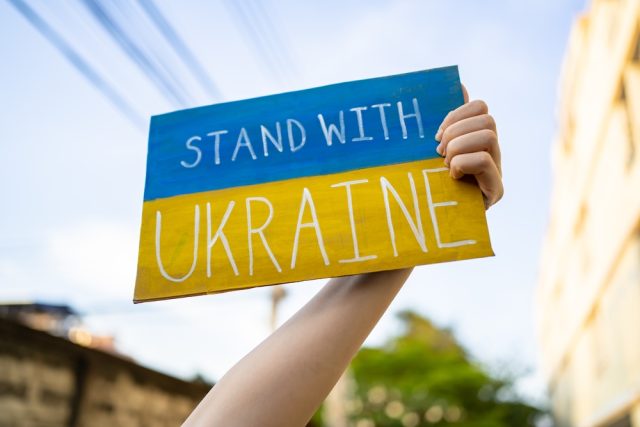
An Unprecedented Commitment with Uncertainties and Confirmations, in a Context of Ever-Increasing Instability
The European Union has reiterated its unconditional support for Ukraine in its resistance against Russian aggression, as stated by the Polish Minister for European Affairs, Adam Szłapka, speaking at the European Parliament on behalf of the EU Council. During the debate, Szłapka highlighted that the EU and its member states have provided Ukraine with around 134 billion euros over the past three years, an economic commitment unprecedented in the history of the Union.
A Conflict Threatening the World Order
The war unleashed by Russia is not only a crisis for Ukraine, but a direct threat to the whole of Europe and the rules-based international system. The invasion has had devastating consequences, polarizing international relations and contributing to global instability, especially in the areas of energy and food supply. The EU responded firmly, taking the lead in the international response and providing multidimensional support to Kiev.
Since the beginning of the conflict, the European Union has condemned Russian aggression and provided a wide range of assistance to Ukraine. The support provided has covered several areas:
Political and diplomatic: The EU has supported the Ukrainian cause in key international forums, pushing for Russia’s diplomatic isolation and supporting Ukraine’s accession to the Union.
Military: It has provided armaments, military training and strategic aid to strengthen the country’s defensive capacity.
Financial and economic: With around €134 billion allocated, the EU has supported the Ukrainian budget, financed the reconstruction of damaged infrastructure and guaranteed concessional loans.
Humanitarian: Millions of Ukrainian citizens have received assistance in the form of food, medicine, shelter and support for the reception of refugees in Europe.
The EU’s Long-Term Commitment
The EU has confirmed its determination to support Ukraine for as long as it needs to prevail over Russia. Szłapka’s message, which ended with the exclamation “Slava Ukraini!”, underlines that European solidarity with the Ukrainian people remains solid and unchanged. The EU’s response is not limited to the financial and military aspect, but also extends to the prospect of Ukraine’s integration into the EU bloc. The accession path represents hope for the Ukrainian people, reinforcing the idea that the country’s future is linked to Europe and its democratic values.
Despite the EU’s enormous commitment, many challenges remain. The prolongation of the conflict implies the need to maintain constant economic and military support, while ensuring unity among Member States. Furthermore, the global repercussions of the war, including rising energy prices and shortages of grain and raw materials, require careful management of economic and social policies. The EU must continue to balance support for Ukraine with the management of its own internal challenges, maintaining political cohesion and consensus among European citizens. The future of the continent depends largely on the ability to address this crisis with determination and foresight.
The European Union’s support for Ukraine is an unprecedented demonstration of solidarity, an investment in the stability and security of the entire continent. Russian aggression has highlighted the need for a united and decisive response, and the EU has shown that it is up to the challenge. While the path to peace still appears long and complex, Europe’s message is clear: Ukraine will not be left alone and will continue to receive the support it needs to defend its independence and build its future within the European family. The EU’s commitment must continue with coherence and determination, adapting to the evolution of the conflict and the new geopolitical challenges that will arise. All of Europe will be a guide for the resolution of future conflicts.



 Subscribe
Subscribe